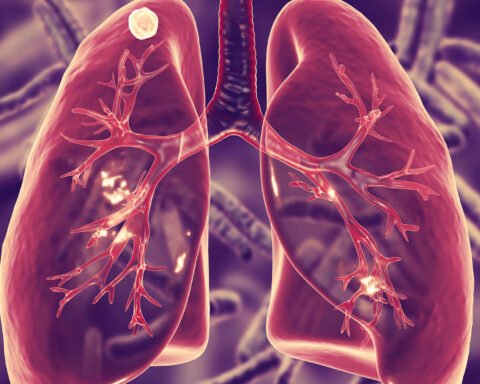In business there is something called a Strategic Inflection Point, this is defined as “a time period when an organization must respond to disruptive change in the business environment effectively or face deterioration. An inflection point, in general, is a decisive moment in the course of some entity, event or situation that marks the start of significant change.”
“What is an inflection point?
An inflection point is an event that results in a significant change in the progress of a company, industry, sector, economy, or geopolitical situation and can be considered a turning point after which a dramatic change, with either positive or negative results, is expected to result.
Companies, industries, sectors, and economies are dynamic and constantly evolving. Inflection points are more significant than the small day-to-day progress typically made, and the effects of the change are often well known and widespread.
Key Takeaways
• An inflection point refers to a key event that changes the trajectory of some process or situation related to the economy or society.
• Inflection points are more significant than the small day-to-day progress typically made in a company, and the effects of the change are often well known and widespread.
• When an inflection point is identified, it is often a sign that the affected industry must make certain fundamental changes in order to continue to operate.
• Inflection points can be intentional (actions taken by a company or competitor) or unintentional (those that occur by accident or from unforeseen events).
• If companies are not able to adapt to an inflection point, they will fail to keep up with competitors and cease operations. For those that can adapt, inflection points can be an advantage.”
Much has been said about 5G, early in the COVID-19 pandemic the internet was awash with many conspiracy theories that 5G was in fact to blame for the pandemic. It was obscenely ridiculous but the one thing that the architects of propaganda know is that “narrative trumps/supersedes facts” something does not need to be true, it only needs to be repeated enough times and once the narrative sticks it is hard for the truth to be uncovered.
Well, this article is not meant to dwell much on those outlandish theories but rather consider what the possible impact of 5G on conventional healthcare. 5G technology could represent an SIP for healthcare, but all of that is hinged upon how fast we can find uses for it and leverage it for the betterment of our society.

Figure 1 Areas set to be transformed through 5G backed healthcare technology. Source: https://www.ericsson.com/en/reports-and-papers/5g-healthcare
Data transmission and access
In recent times, healthcare has shown that it generates an enormous amount of data. Everywhere you go (apart from some areas in the “third world”), data is a currency in and of itself. The new age of the internet has opened a new field where huge amounts of data need to be transmitted online to the cloud or to other data processing centers in real time.
At present, in the medical field, at least in the US and other nations, this data transmission has been principally transmitted using the now ‘ancient’ 3G network. With the advent of high-speed 5G network overlaid on existing architecture, this could allow the transmission of data from critical diagnostic machinery such as MRI, CT scanners etc. to specialists in a much more reliable and faster way. Previously, using machinery such as PET scanners generates extremely large files, somewhere in the range of 1GB per patient.
To transmit this data to specialists would require considerable network efficiency to make this happen, but with 5G this would happen as soon as the patient is out of the scanner. Faster processing of such routine medical assessments will improve health delivery and potentially increase better patient outcomes due to early intervention.
There are some medical conditions which have slim windows of intervention to significantly change the prognosis, waiting for inordinately long periods of time to obtain results could literally be a matter of life and death or permanent disability. This is all bound to change and help healthcare providers improve their response time. In addition, patients will also be able to access their medical records in central repositories in an efficient manner.
Acceleration of telemedicine
The COVID-19 pandemic accelerated telemedicine which had already been forecasted to grow in earlier years. To quote Anuja Vaidya (2017):
“The global telemedicine market is anticipated to experience rapid growth over the next six years, according to a Market Research Future report.
Here are five market trends:
- The market is expected to grow at a compound annual growth rate of 16.5 percent from 2017 to 2023.
- Factors driving the market include an increase in demand for healthcare services in rural areas and a rise in government initiatives.
- However, the high installation cost of the telemedicine technology solutions may limit market growth in developing nations.
- North and South America currently account for the largest share of telemedicine market.
- The Asia Pacific is expected to the fastest growing region during the forecast period, due to a rising geriatric population, increasing prevalence of chronic diseases and developing healthcare infrastructure.”
A common challenge to all countries is making sure that access to healthcare is equitably distributed and key to this is ensuring that every corner of the country has adequate coverage. To address this, telemedicine requires a network infrastructure that can support real-time high-quality video which is entails a wired network. With 5G healthcare systems can enable mobile networks to handle telemedicine appointments which would greatly increase the reach of the program. It is important to note that although all these possibilities are set to be unlocked or are already unlocked in developed countries, Africa lags in many ways. In some places 3G network is still inaccessible hampering the development of technologies that could better serve communities in these remote enclaves.
Streamlining augmented reality/virtual reality in healthcare
There are studies that have shown that AR and VR can be used with great success in rehabilitation and care. Researchers have found that by putting patients in a different environment (virtual or real), they can distract patients from painful or anxiety-driven experiences (Mallari et al., 2019). Using AR/VR. Healthcare professionals can improve patient’s outcomes through minimizing their pain and drastically reduce their time in healthcare institutions.
At present, VR for hospital and therapeutic use is still expensive and it is wired to ensure low latency, resulting in a fully immersive experience with no lagging. In the current set-up, patients cannot be highly mobile due to the expensive wired set-up. With 5G, VR and AR treatments will move to a wireless set-up allowing comprehensive mobility and reduced hardware cost while improving on data transfer. Another facet of healthcare that will be transformed through 5G is surgical training/rehearsal. Complex surgical operations cam be simulated with input from off-site specialists guiding the process. This literally brings the world’s expertise to every corner of the planet! - Remote robotic surgery and training
Robotic surgery is already happening with the only difference being that the surgeon will be standing next to the robot rather than remotely. Generally, the procedures are conducted using real time haptic feedback and high-definition image streaming coupled with high throughput communication. With 5G, a surgeon in one part of the world will be able to operate a patient on the other side of the globe. The simple requirement is the availability of 5G networks in both locations and the installation of robotic surgical arms at the patient’s location.
Given the existing inequalities in access to specialized surgical operations with some surgical procedures having waiting lists extending 3-5yrs from present day especially in countries like Zimbabwe, it would be a significant game changer. Medical tourism has been premised on the absence of affordable specialist diagnostics and care. Fusing telemedicine and remote surgery could significantly reduce the need for patients to move from country to the next in search of medical interventions.
Advancements in connectivity that will be brought to the fore by 5G will greatly improve health outcomes in areas where physically present healthcare workers are absent. Also, due to globalization, health specialists from one country could sit for surgery exams in a country half-way across the world from the comfort of their home institutions. - What 5G means for Africa
The obvious disparities in mobile network infrastructure is a significant limiting factor, so far 5G networks are topical issues in developed countries such USA, UK, Australia, South Korea, China and others. There is a huge gap between these nations and African countries. Despite this chasm, African nations can make a huge leap by avoiding some developmental mistakes that advanced countries made on their path from 4G to 5G.
There is need for an investment in the right infrastructure that allows us to scale this gap and unlock a new lived reality for the continent. For the most part, installation of 5G capable antennas can be centralized to healthcare facilities so that the interchange of skills and sharing of access to specialist care reaches the populace. The challenges all seem daunting, and for sure there is need to fix structural and political leadership issues on the continent, but we cannot wait idly and somehow hope for the best.
Some analysts predict that 5G will add an additional $2.2 trillion to Africa’s economy by 2034. This is a welcome analysis because the World Bank, before the COVID-19 pandemic had estimated that by 2030, poverty will be an exclusively African phenomenon, such a bleak projection whether it is an over estimation or not means that there is a certain level of vigilance and drive that our leadership should be invested in to avert an almost certain danger.
With the reality of climate change lurking behind the corner, agrarian based economies will be hardest hit, thus the move to service industry-based economies might be a possible solution. In the United States alone, the service industry accounts for about $17 trillion of America’s $22 Trillion economy. Will Africa leverage 5G to accelerate what would be arguably the biggest service-based industry in modern times? Africa has a population of just over 1 billion and arguably the biggest continental free trade area in the entire world. How can we leverage 5G to unlock a period of sustained growth and economic prosperity? So far, a few African countries have started trialing 5G networks.
These countries include Ethiopia, Botswana, Egypt, Gabon, Kenya, Lesotho, Madagascar, Mauritius, Nigeria, Senegal, Seychelles, South Africa, Uganda, and Zimbabwe (yes, Zimbabwe is there!). The sad thing though, is that before African can dream of 5G, it urgently needs to work on 4G first. According to the industry body GSMA, as of 2019, 4G internet signals only covered about half of the continent! This is appalling to say the least. Reports on illicit financial flows show that Africa leaks about $50 Billion USD per annum, this would be enough to revolutionize the technological landscape of the continent. It is also shocking that only 10% of Africa’s population presently uses 4G (source Vodacom).
The process of transitioning from 3G/4G to 5G has a universal roadmap. Prior to developing such a roadmap, governments should agree on general objectives for future digital development.

Figure 2 Universal Roadmap. Source: https://www.gsma.com/spectrum/wp-content/uploads/2021/09/spec_ssa_5g_iot_report_09_21.pdf
Governments in Africa must be clear in terms of what spectrum is available and best meets their needs. The steps given in Figure 2, might be similar but the detailed activities may vary from one country to another.
The key frequency bands to prioritize for 5G are, the 3.5 Ghz range. 700 MHz and mmWaves. It is important to note that there are alternative bands based on what has already been awarded for mobile, so as part of the groundwork regulators should consider the specific spectrum needs of 5G, including the provision of contiguous, bandwidths, exclusive use, peakiness of demand and need for harmonization.
Care must also be taken to also consider the ease of moving existing technology and the impact on services and users. The greatest hurdle for African countries is the paucity of 5G capable mobile devices. The introduction of 5G means that highly expensive devices tailored to receive signals must be accessible to consumers.
This presents a challenge where the average disposable income is not significantly high enough to allow more people to purchase such devices. The average price of the cheapest 5G capable device is around $300 USD which would be expensive given the levels of income in areas of the continent such as Sub-Saharan Africa.
The availability of 5G across the African continent could unlock several industries as well as improve on agricultural monitoring, cybersecurity and enhance the movement towards “smart homes”. However, there is still a lot of work around the regulatory and technical framework and Africa can best observe and learn how the first movers on the technology globally have tackled them.
Where other countries are thinking of autonomous vehicles, Africa still needs to tackle the challenge of improving its road networks, including building the actual roads too, while we talk about modernizing agriculture through technology, there are still many citizens across the continent using ox-drawn ploughs to till the land, so the real question is, how to do we maximize the use of existing technology and not fall too far behind the rest of the world.
As it stands, 42 countries out of 54 have not even, started thinking about 5G and the ones who are the pioneers, it is still restricted to urban centers. Make no mistake, 5G is highly likely to turn out to be a Make no mistake, 5G is highly likely to turn out to be a Strategic Inflection Point in the development of modern societies
Strategic Inflection Point in the development of modern societies
“5G is a core foundation, upon which modern societies – their economies and their militaries alike – will rest. [This network of networks] will be essential to how industries compete and generate value, how people communicate and interact, and how militaries pursue security for their citizenry. 5G is potentially one of the most important networks of the 21st century. It is the very definition of critical infrastructure.”
We have to make strategic moves and plan to respond to a world that is set to change forever. My last words to Africa are, “Today is the first day of the future, and one step made in the pursuit of a dream surpasses an infinite number of intentions.”
Denver Ncube is a husband and terrorized father of 2 adorable kids. He is a trained Anatomist and Neuroscientist based in the United States. He taught at the University of Zimbabwe College of Health Sciences between 2009-2016 before pursuing doctoral studies in Neuroscience at the University of Oregon courtesy of one of the world’s most prestigious scholarship, the Fulbright Scholarship. An avowed science and tech enthusiast and cake connoisseur he splits most of his time between designing data-driven solutions for logistics and biopharmaceutical research in neurodegenerative diseases. In his spare time, he enjoys playing soccer and basketball, and some pro-bono DIY Sony Xperia smartphone software repairs. He can be reached at denver.ncube@gmail.com or vancubezvavo@gmail.com







